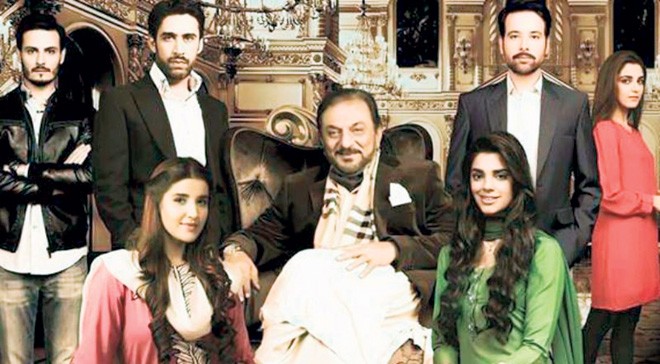
With an all-star cast mixed with strong, progressive characters, the hit TV play, Diyar-e-Dil concludes on a high. Instep takes a look

With so many TV serials centering upon the recurrent themes of love, relationships and pride – presenting stories that are often removed from reality – it is often rare, if not impossible to find a television play that offers something more.
This is where Hum TV’s drama serial, Diyar-e-Dil makes such an impact. Though the serial falls in the category of family drama, it’s refreshing as a series because of its extraordinary characters and applause-worthy attention to detail.
At the heart of the serial is the story of a family, inhabited by strong characters that clash in ways that make them not only human, flawed as they are, but also relatable for many.
As the play begins, we are introduced to Agha Jan, the egoistical father played by Abid Ali – who wants his elder son Behroze (Mikaal Zulfiqar) to marry his brother’s daughter Arjumand (Hareem Farooq). However, Behroze refuses to comply with his father’s wish and marries Roohi (Sanam Saeed), whom he falls in love with. Agha Jan disowns Behroze, who goes away and lives in Lahore, and the younger brother Sohaib (Ali Rahman) marries Arjumand who gives birth to Wali (Osman Khalid Butt). Meanwhile, Faarah (Maya Ali) is born to Roohi. The story takes a turn when Sohaib dies, bringing Behroze back to his own land who, then wants to fulfill his late brother’s last wish - that is the marriage of Wali to Farah.
Weaving together several powerful characters with intertwined stories of two generations, director Haseeb Hassan’s execution makes it worth a watch.
Set in Skardu and Gilgit-Baltistan, the show captures Pakistan’s gorgeous landscape in a stunning fashion.
The depiction of a close-knitted tribal family attached to age-old traditions and cultural values is done with precision as it is passed on from one generation to the next.
As the drama progresses, the grandchildren - Wali and Farah - continue to show love and respect to their elders and never rebel. In fact, the two get married just because of their fathers’ collective wish, which lead to a reunion of the split families.
Death also takes center stage as the brothers pass away and Agha Jan drives the reunion forward, despite the loss.
What makes Diyar-e-Dil commendable is the intensity and delicacy with which each character is introduced to the viewers. And it must be said, this all-star cast makes all the difference.
Abid Ali, with his strong and dominant role as Agha Jan remains the centre of attention throughout. Mikaal Zulfiqar’s Behroze, spoiled and stubborn, and Ali Rahman’s Sohaib, who wins everyone’s heart with his sweet temper, make their characters believable. As two brothers who come from a wealthy family, they leave a strong impression. The king of craft, Osman Khalid Butt who stars as Wali, the grandson, is equally memorable, thanks to his dialogue delivery and onscreen charisma.
Diyar-e-Dil also excels where others fail because it doesn’t present women as victims. They are headstrong and just as powerful in thought and portrayal. Unlike several other stories that present women as bechari and dependent on their male counterparts, almost all of the women in Diyar-e-Dil have their own say in the decision-making process. Despite practicing old customs and traditions, the men of the family respect their women, support their education and do not impose their will on them. In fact, after the death of the two brothers, Roohi and Hareem take their position in the family.
The themes of love, respect, and family values are recurrent through Diyar-e-Dil. The show does a neat job of exploring various emotions and how damaging it can be if one is arrogant and angry and spends time in a negative structure.
Though the play starts to drag a bit before coming to the end, it successfully manages to sustain the audience’s interest, linking past and present in a linear fashion.